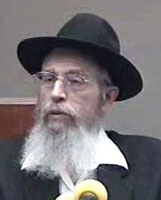2
Ruling: After the sides agreed orally, there were multiple elements that (might have) served as a kinyan. Paying for the rental is a kinyan (Shulchan Aruch, Choshen Mishpat 190:1), and many poskim say that giving checks (which def did) counts as money. The signed contract is a kinyan at least as situmta (see ibid. 201:2), even if the contract does not contain a date (see ibid. 317:2). Use of the property is also a kinyan (ibid. 195:9). Once there is a kinyan, the assumption is that rent is due until proven that it was supposed to be for free. The fact that there was no tofes 4 does not preclude a real rental because communications between the sides show that def was aware that there was not going to be one in the beginning and that it was not clear when there would be one. It is also noteworthy that def first brought up this claim only several months after they entered the apartment and some payments were already made.
According to def there was explicit agreement not to pay rent until permanent electricity was installed, and such an agreement can be valid, but pl denies this. Usually in such cases, we say that the one who wants to extract payment (in this case, pl, since he wants payment for rental from def) must bring proof. However, since there was a relationship in practice of renting (i.e., def actually lived there with pl's permission), to claim that a condition exists to exempt natural payment requires proof (see Shut Harashba I:972; K'tzot Hachoshen 251:1).
Although the rental contract is undated, this does not invalidate the contract. We can also deduce that def considers the contract as valid from the fact that they used it to support some of their claims. As far as from when to apply the contract, naturally this would be when def started living there. In this case, pl admits that it started a few days later, in the beginning of Sept. 2021.
We continue next time.

Writing a Sefer Torah
Rabbi Yirmiyohu Kaganoff | Tishrei 3 5780

Mourning Customs During the Omer
Rabbi Eliezer Melamed | 5764

Writing a Sefer Torah
Rabbi Yirmiyohu Kaganoff | Tishrei 3 5780

Pondering Passover
Part 1
Rabbi Eliezer Melamed | Adar 5761
Daf Yomi Makkot Daf 19
R' Eli Stefansky | 29 Nisan 5785

The Yom HaZIKARON SIREN- EVERY ARROW NEEDS A HEAD!
Rabbi Ari Shvat | Iyar 5785
Daf Yomi Makkot Daf 20
R' Eli Stefansky | 30 Nisan 5785








